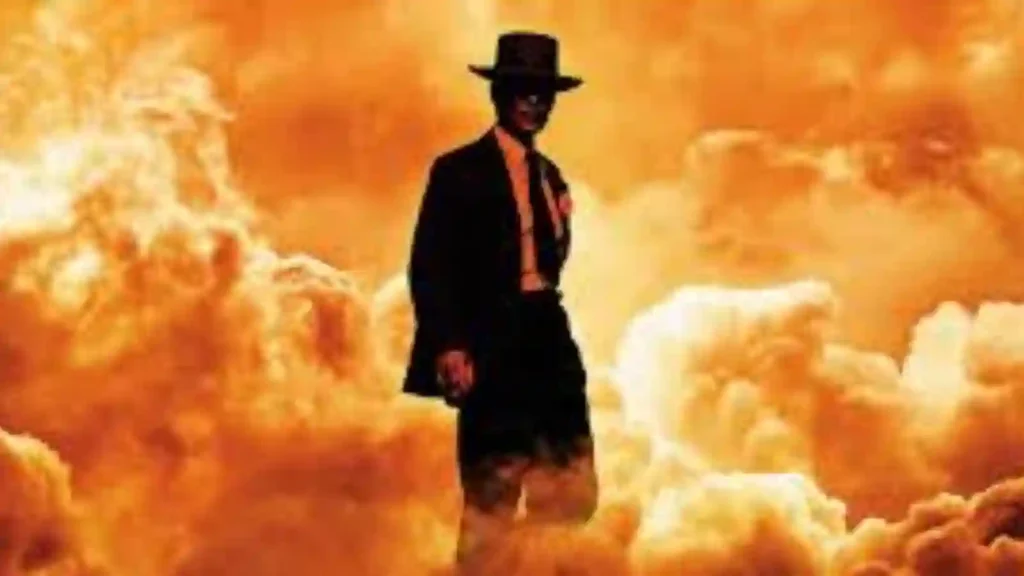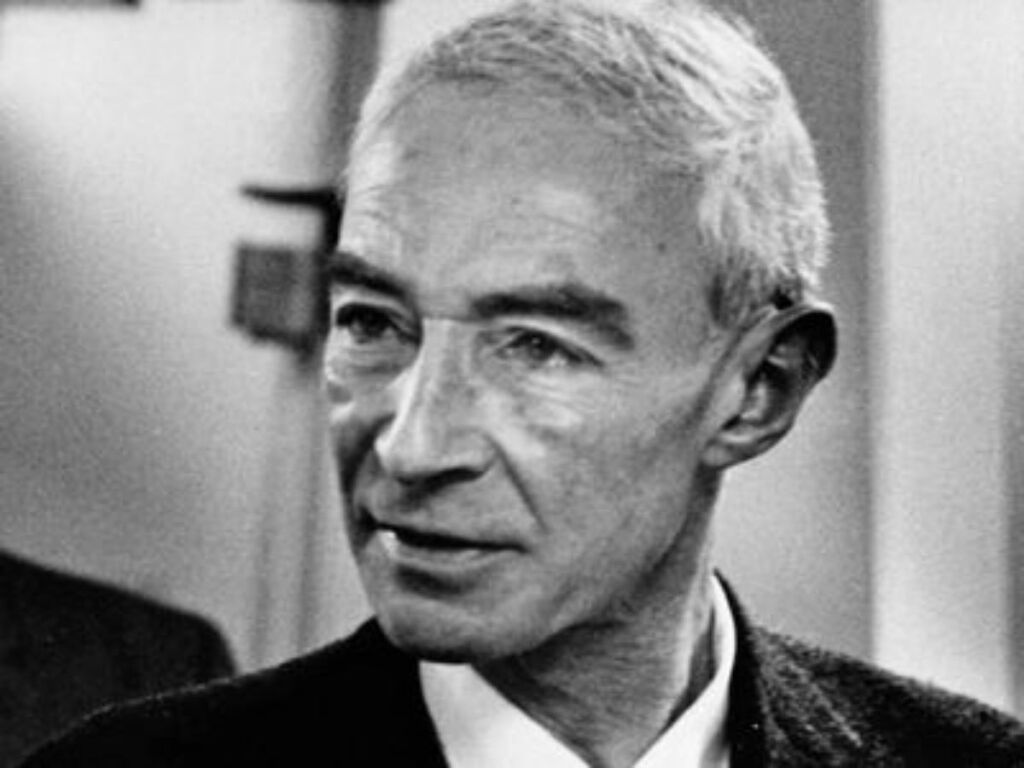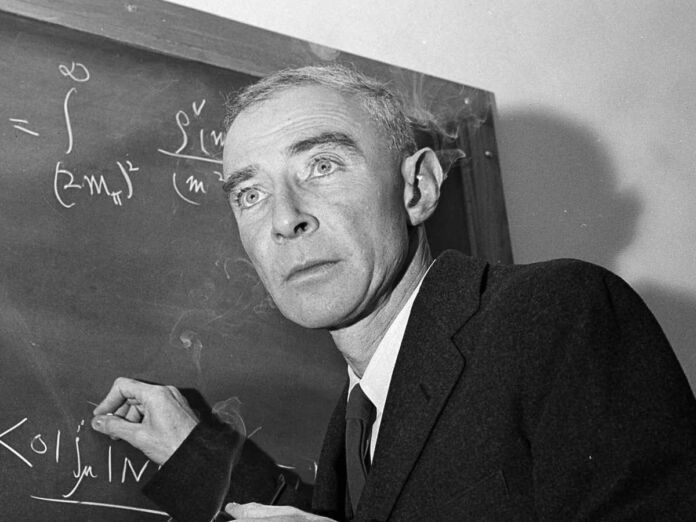Quotes have a way of getting to you and inspiring you, be they inspirational or fun quotes. And one such quote that entirely changed the life of J. Robert Oppenheimer, the designer of atomic bombs was from the Hindu text Bhagavad Gita. According to his colleague Isidor Rabi, “a feeling of mystery of the universe that surrounded him like a fog“, was Oppenheimer’s response after reading the sacred text. Every time Oppenheimer questioned humanity, the physicist turned to the Bhagavad Gita for answers and internal peace.
“Now I Am Become Death, The Destroyer Of Worlds” is the most famous line from Bhagavad Gita but it is also the most misinterpreted. On July 16, 1945, he witnessed the first detonation of a nuclear weapon and this piece of Hindu scripture rushed through the mind of Oppenheimer.

Related: Did Oppenheimer Win A Nobel Prize?
The Inspiration Behind Oppenheimer’s ‘Now I Am Become Death’ Quote Explained

Father of the Atom Bomb, Robert Oppenheimer never followed or practiced Hinduism, instead, he was deeply moved by this one quote from the Bhagavad Gita, translated by Dr. Stephen Thompson. The Bhagavad Gita is a Hindu spiritual text that holds an intriguing conversation between Lord Krishna (an avatar of Lord Vishnu) and Arjuna, a skillful warrior. This conservation occurs during the battle of Mahabharat when Arjuna realizes that killing his brothers and family is a sin. But Krishna enlightens him by saying that souls don’t cease to exist after death and Arjuna’s loved ones will be reincarnated, hence he should not grieve for them. Krishna instead asks him to focus on his dharma as a Kshatriya (warrior) and fight for righteousness.
Lord Krishna believed and emphasized that one must not renounce his action, but should renounce his lust and desire for the results. The only true way to salvation is to act without desire. Also, the verses of the Bhagavad Gita are the conservation between the Lord and Arjuna that tackles philosophical questions like righteousness or duty, desire versus lust, liberation or delusion, and the path to Moksha (heaven).
Finally, during the 11th verse, Arujna requires Lord Krishna to show his true cosmic self. Lord Krishna then metamorphosizes into the divine god Vishnu with a fiery mouth, innumerable eyes, and limbs that seem to be holding the entire universe. Seeing Krishna’s cosmic self Arjuna bowed down to him. Lord Vishnu is the source of all things, both physical and metaphysical. He is the deepest valley, and highest mountain and the greatest god, containing all the gods within himself. He is both the creation of everything and its destroyer.
In case you missed: How Did Christopher Nolan Create A Real Nuclear Explosion In ‘Oppenheimer’?
Oppenheimer’s Epiphany

The verse of the Bhagavad Gita truly intrigued Robert Oppenheimer and he reached his epiphany and tried to justify his creation of atomic bombs. Dr. Stephen Thompson deciphered Oppenheimer’s realization. Thompson said, “Arjuna is a soldier; he has a duty to fight. Krishna not Arjuna will determine who lives and who dies, and Arjuna should neither mourn nor rejoice over what fate has in store, but should be sublimely unattached to such results.” Similarly, Oppenheimer attempted to make sense of his creation and tried to find peace with it.
In verse thirty-two, Krishna quotes what changed Robert Oppenheimer’s life: “Now I am become death, the destroyer of worlds, which is literally the world-destroying time.” Dr. Stephen Thompson deciphered world-destroying time as death. The quote basically means that irrespective of what Arjuna does, everything is in the hands of the divine. Oppenheimer struggled to make peace with his creation until the end of his life and was never able to make sense of it. Initially, when Oppenheimer was merely a scientist, he had no clue that his creation would result in mass destruction and casualties in Hiroshima and Nagasaki. Like Arujna, Oppenheimer had a duty, even though it was against his values, but a duty is a duty nonetheless.
Dr. Stephen Thompson also said, “If you were a priest you wouldn’t have to do this, but you are a warrior and you have to perform it. In the larger scheme of things, presumably, the Bomb represented the path of the battle against the forces of evil, which were epitomized by the forces of fascism.” Basically, to escape the feeling of guilt for the aftermath of Hiroshima and Nagasaki, Robert Oppenheimer felt safe to believe that it was his duty, just like Arujna and he was simply performing his duty as a scientist (his dharma). Although he was shaken up by his creation, he refused to believe the words of Bhavagad Gita which says destruction is a mere illusion. Also, Oppenheimer never felt comfortable with the idea of the immortal soul and felt at peace only with the escape of his soul.
You might also like to read:





